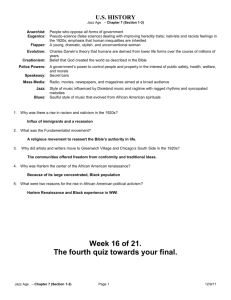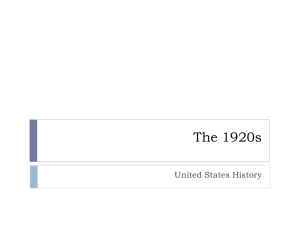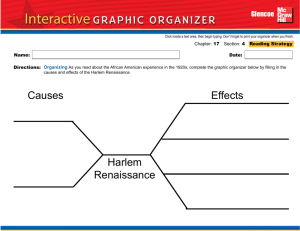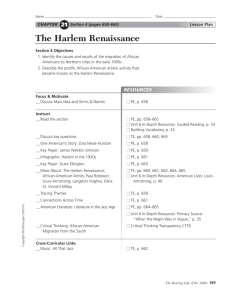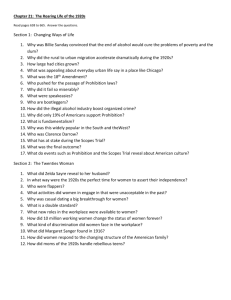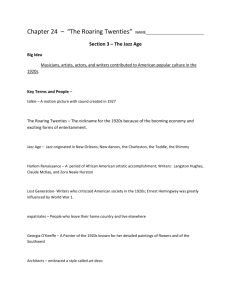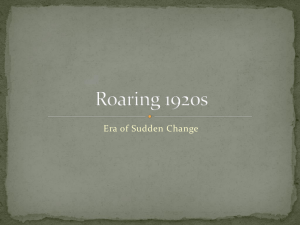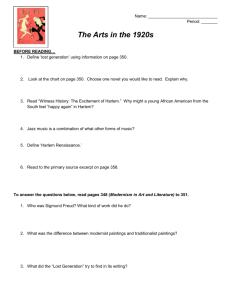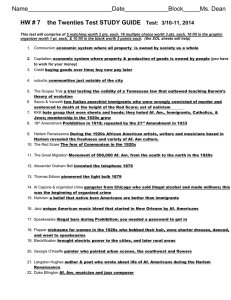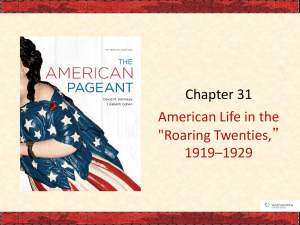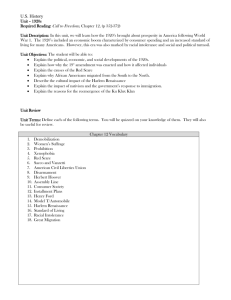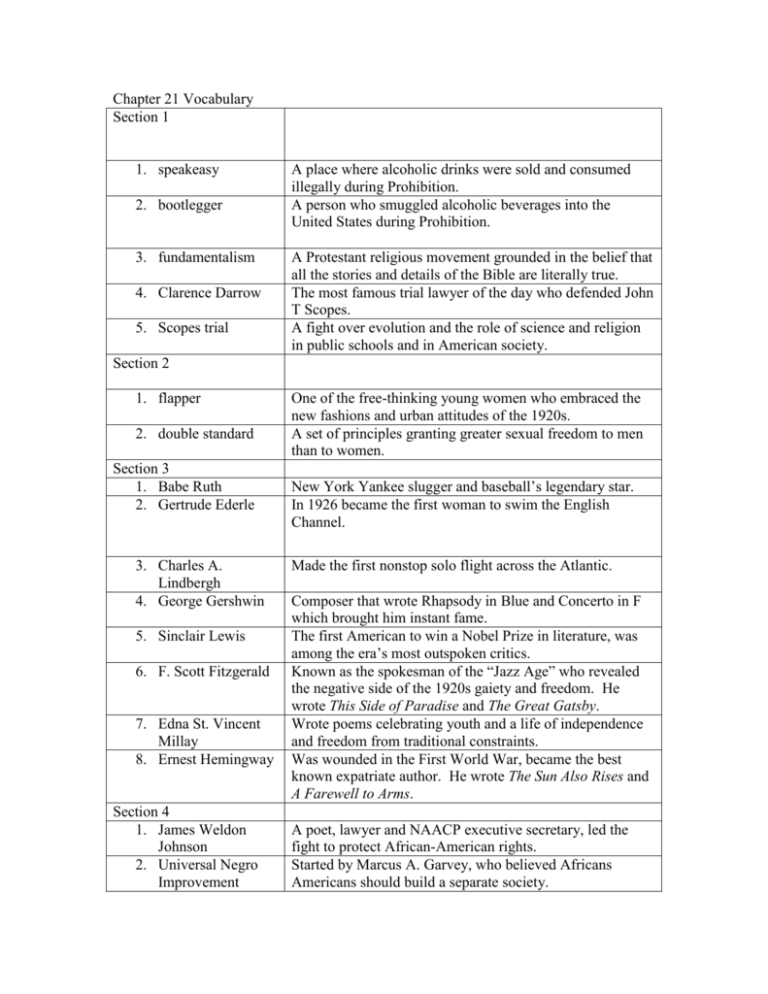
Chapter 21 Vocabulary
Section 1
1. speakeasy
2. bootlegger
3. fundamentalism
4. Clarence Darrow
5. Scopes trial
A place where alcoholic drinks were sold and consumed
illegally during Prohibition.
A person who smuggled alcoholic beverages into the
United States during Prohibition.
A Protestant religious movement grounded in the belief that
all the stories and details of the Bible are literally true.
The most famous trial lawyer of the day who defended John
T Scopes.
A fight over evolution and the role of science and religion
in public schools and in American society.
Section 2
1. flapper
2. double standard
Section 3
1. Babe Ruth
2. Gertrude Ederle
3. Charles A.
Lindbergh
4. George Gershwin
5. Sinclair Lewis
6. F. Scott Fitzgerald
7. Edna St. Vincent
Millay
8. Ernest Hemingway
Section 4
1. James Weldon
Johnson
2. Universal Negro
Improvement
One of the free-thinking young women who embraced the
new fashions and urban attitudes of the 1920s.
A set of principles granting greater sexual freedom to men
than to women.
New York Yankee slugger and baseball’s legendary star.
In 1926 became the first woman to swim the English
Channel.
Made the first nonstop solo flight across the Atlantic.
Composer that wrote Rhapsody in Blue and Concerto in F
which brought him instant fame.
The first American to win a Nobel Prize in literature, was
among the era’s most outspoken critics.
Known as the spokesman of the “Jazz Age” who revealed
the negative side of the 1920s gaiety and freedom. He
wrote This Side of Paradise and The Great Gatsby.
Wrote poems celebrating youth and a life of independence
and freedom from traditional constraints.
Was wounded in the First World War, became the best
known expatriate author. He wrote The Sun Also Rises and
A Farewell to Arms.
A poet, lawyer and NAACP executive secretary, led the
fight to protect African-American rights.
Started by Marcus A. Garvey, who believed Africans
Americans should build a separate society.
Association
3. Harlem
Renaissance
A flowering of African-American artistic creativity during
the 1920s, centered in the Harlem community of New York
City.
4. Claude McKay
A Jamaican immigrant, who helped to establish the Harlem
Renaissance.
5. Langston Hughes
The Harlem Renaissance’s best-known poet.
6. Zora Neale Hurston The most accomplished African-American woman writer of
the era.
7. Paul Robeson
The son of a runaway slave, who became a dramatic actor.
8. Louis Armstrong
A trumpet player whose talent rocketed him to stardom in
the jazz world.
9. Duke Ellington
A jazz pianist and composer.
10. Bessie Smith
A female blues singer, perhaps the outstanding vocalist of
the decade.


